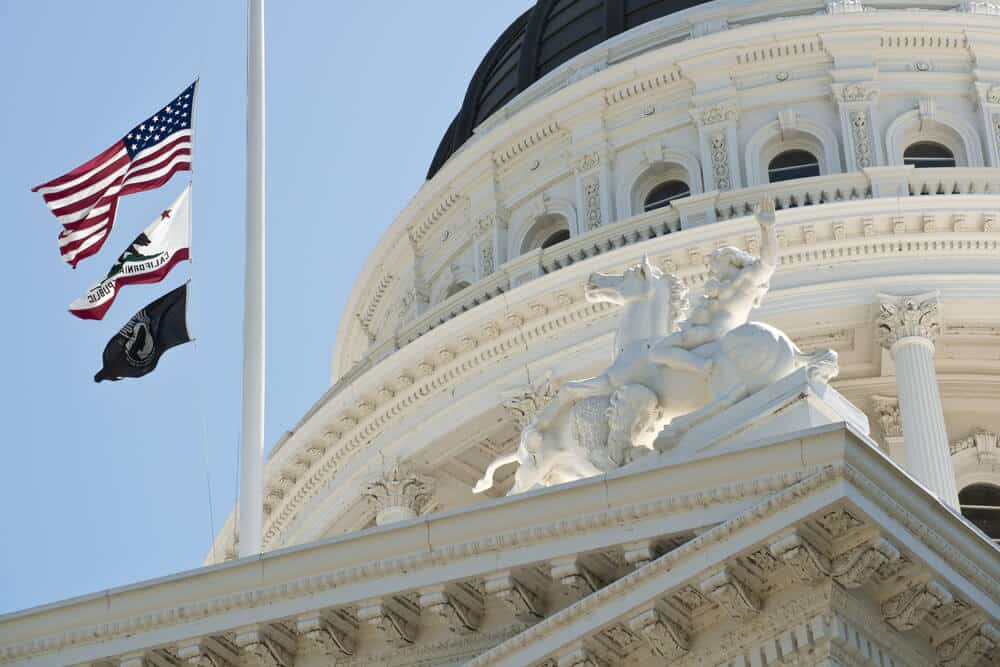70% of CA Voters Approve of the Measure According to a Recent Poll
Los Angeles, CA – Embracing the principle that “sunshine is the best disinfectant,” a new ballot initiative would overhaul California’s open records laws to combat government corruption and protect the health and well-being of Californians, according to Consumer Watchdog.
Download the initiative here.
The initiative, filed with the Attorney General today, would strengthen California’s Public Records Act and the Legislative Open Records Act to make state government agencies more responsive to public requests for government documents and increase state legislators’ public reporting of meetings with lobbyists and investigations into misconduct.
The initiative received 70% approval in a statewide poll, a virtually unheard-of level of voter approval according to leading pollsters.
Download the summary of the poll results here.
“The poll results demonstrate that voters are aligned in the belief that the public should have greater access to government documents to ensure effective oversight of public officials regardless of their political or ideological leanings, gender, or age,” said Paul Maslin of FM3 Research, a major statewide opinion research and strategy company that conducted the poll. “It is extremely rare in our experience, particularly in the recent polarized environment, to see such broad support as this for a measure across partisan and ideological lines.”
The initiative was developed by Consumer Watchdog along with leading Public Records Act litigator Kelly Aviles of Californians Aware and a working group of open government experts.
“The California Public Records Act and the Legislative Open Records Act reflect the principle enshrined in our state constitution that access to information concerning the conduct of the people’s business is a fundamental right to every person in the state. However, those laws and principles have been abused or weakened by legislators and government officials,” said Jerry Flanagan, Litigation Director for Consumer Watchdog and author of the initiative. “Failures in government transparency can be hazardous to our health and to the health of our democracy. The Government Transparency Act is necessary to protect and expand the public’s right to an open and accountable government.”
Some of the many abuses and loopholes the initiative addresses include:
- The California Public Utilities Commission has consistently resisted consumer advocates’ requests for public documents relating to the safety and integrity of California’s public utilities. Following the devastating wildfire that destroyed the town of Paradise, records showed that the government knew that PG&E’s power lines were not properly maintained and posed a serious threat to public safety but did not disclose the dangers to the public. Passing this measure to strengthen open records laws is essential to making sure the public has the information it needs to hold government agencies and corporations accountable.
- The City of San Jose has been repeatedly sued for “perpetually extending its own deadline” for responding to public records requests. Such tactics, which often delay records long past the time they are relevant to the public debate, would be barred under the strict deadlines for the release of records set by the initiative.
- In another common tactic to thwart access to public records, Mendocino County recently charged $84,001.22 to produce records by dramatically overstating its costs and required that a “deposit” be paid up front. Research by the First Amendment Coalition and the ACLU identified seven other counties—Los Angeles, Shasta, Siskiyou, Calaveras, Tuolumne, Santa Cruz and Ventura—that passed local ordinances purporting to give them the authority to impose excessive fees on the public. The initiative would end this abuse by capping charges at the “actual” cost of producing records, no more than 10 cents per page.
- Finally, though Californians have a Constitutional right to access public records, there is no minimum document retention period applying to state agencies. Records are routinely deleted and destroyed—sometimes in as little as 60 days for email communications—before the public and journalists have the opportunity to access them. The initiative would set a five-year minimum retention period for all public records.
The major provisions of the initiative include:
- Requiring legislators to disclose on their websites lobbying meetings, fundraising events, and public events paid for with public or campaign funds.
- Requiring that records relating to investigations into legislators’ misconduct be provided to the public upon request.
- Establishing standards to ensure government agencies conduct thorough searches for public records.
- Prohibiting agencies from deleting or destroying public records for a minimum of five years after a record is created.
- Requiring agencies to provide requested public records within 30 calendar days of a request.
- Providing that members of the public who sue public agencies to enforce the law have the same access to discovery as in any civil lawsuit, and making the appeal process less onerous on the public.
- Clarifying that the definition of public records includes documents maintained by private contractors and vendors relating to their work on behalf of the public.
- Limiting the ability of companies to file preemptive lawsuits to deny access to public records.
- Making available to the public communications and other records exchanged between government employees and entities outside of government about policy decisions, and limiting public agencies’ use of the attorney-client privilege and the attorney work product doctrine to bar access to public records.
- Requiring public agencies to publish annual reports that provide information about delays in access to public records.
The initiative was submitted today to the California Attorney General’s office for preparation of the title and summary. Once qualified for the ballot, the measure will appear on the November 2024 ballot.


